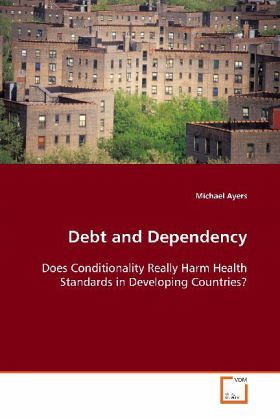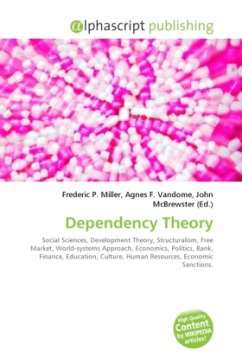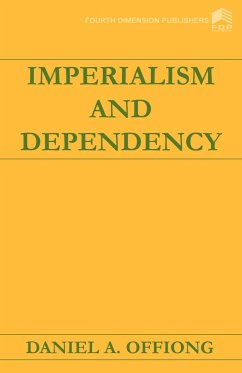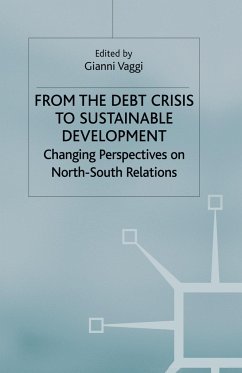
Debt and Dependency
Does Conditionality Really Harm Health Standards in Developing Countries?
Versandkostenfrei!
Versandfertig in 6-10 Tagen
39,99 €
inkl. MwSt.

PAYBACK Punkte
20 °P sammeln!
Developing countries experiencing severe debt problems often participate in conditionality agreements brokered by the IMF and the World Bank. Some argue that these agreements emphasize economic growth over socioeconomic equality, limiting access to health care for the majority of the population. Dr. Ayers tests the assertion that conditionality agreements are detrimental to health standards. A new model, the Distributive Environment Model (DEM), is proposed. The DEM demonstrates that a developing country with low economic growth can achieve improvements in health standards if broad and diverse...
Developing countries experiencing severe debt
problems often participate in conditionality
agreements brokered by the IMF and the World Bank.
Some argue that these agreements emphasize economic
growth over socioeconomic equality, limiting access
to health care for the majority of the population.
Dr. Ayers tests the assertion that conditionality
agreements are detrimental to health standards. A
new model, the Distributive Environment Model (DEM),
is proposed. The DEM demonstrates that a developing
country with low economic growth can achieve
improvements in health standards if broad and
diverse segments of its population have access to
its core economy. Economic growth-oriented policies
(like those typical of conditionality agreements)
are not always necessary to improve health standards
in developing countries. A flexible approach to development policy that considers the socioeconomic
reality of developing countries is recommended in
lieu of the "one size fits all" approach associated
with conditionality agreements.
problems often participate in conditionality
agreements brokered by the IMF and the World Bank.
Some argue that these agreements emphasize economic
growth over socioeconomic equality, limiting access
to health care for the majority of the population.
Dr. Ayers tests the assertion that conditionality
agreements are detrimental to health standards. A
new model, the Distributive Environment Model (DEM),
is proposed. The DEM demonstrates that a developing
country with low economic growth can achieve
improvements in health standards if broad and
diverse segments of its population have access to
its core economy. Economic growth-oriented policies
(like those typical of conditionality agreements)
are not always necessary to improve health standards
in developing countries. A flexible approach to development policy that considers the socioeconomic
reality of developing countries is recommended in
lieu of the "one size fits all" approach associated
with conditionality agreements.












